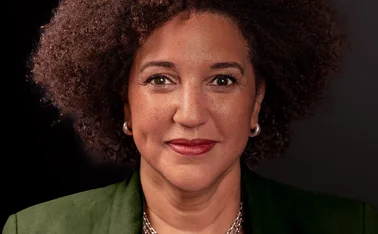
Covéa's Adrian Furness on removing gender barriers

Need to know
- Just 12% of senior managers and 1% of CEOs in financial services are women
- Reviewing recruitment processes can help increase female applications without using positive discrimination
- It needs to be acceptable for a man to take shared parental leave, have a job-share or work part-time
- Scrupulous care must be taken to ensure every decision is made for the right reason and that recruitment is not skewed simply to tick the gender diversity box
Adrian Furness, claims and operations director, Covéa Insurance wants his daughter and other women to be able to fulfil their potential so, as an industry leader, he's making sure he can feel proud rather than apologetic about the industry’s diversity record.
Reading the press lately, I sometimes feel like apologising for being a man in an insurance leadership role. However, I believe it’s right to call out the financial services sector for its poor record on gender diversity. It seems almost unbelievable in 2017 that just 12% of senior managers and 1% of CEOs in our sector are women. It’s a difficult truth to accept, not only because of the implied bias but because, as employers in a competitive market, we are missing a trick by not making ourselves an appealing career choice for everyone.
This is why I’ve taken on responsibility for gender balance at board level within Covéa Insurance. Assuming we’re broadly representative of the insurance sector, we have a situation where many more junior roles (over two-thirds) are filled by women. In middle management, the situation is more balanced. However, it’s in the specialist technical and very senior roles where there is the most marked lack of women.
Interestingly, the imbalance starts even at the recruitment stage. We’ve looked specifically at graduate applications and found that more men than women apply. This could be due to the image of the industry, the type of roles being applied for or the way roles are advertised, so we’ve reviewed all these factors and changed our processes accordingly. As a result, and without using positive discrimination, female graduate applications have increased from 29% to 44% in just two years. This bodes well for the creation of a more gender-balanced pipeline of future leaders and is a very encouraging start.
Making it to the top
But what about women currently working in junior and middle management insurance jobs? How can they make it into the top jobs? Identifying and breaking down barriers that prevent women progressing is a good place to start. One way is making employment policies family-friendly for both men and women. If we can embed employment practices that enable and support both sexes to take an equal role in caring responsibilities outside of work, it will create a more equal footing for women in the office. It needs to be acceptable for a man to take shared parental leave, have a job-share or work part-time. It also needs to be accepted that everyone in senior roles can have flexible working arrangements and still do a great job. For the industry to change, these working practices must become the norm, irrespective of gender or grade.
Mentors, role models, networks and forums to support gender balance all strengthen the confidence and development of the female work population and are helpful in enabling and empowering women to develop their careers. Unconscious bias and inclusion training can uncover attitudes and behaviours that men and women are unaware of, that may hinder women’s careers. These all make a difference but it takes time to change innate behaviours and beliefs – or stereotypes – that have developed over a long period.
If companies are going to manage this change successfully, it’s important that they win hearts and minds and take people with them. Without this buy-in, at all levels, there is the potential for acrimony and division, especially if men or women feel that promotions and appointments are being made based on gender rather than merit. Scrupulous care must be taken to ensure every decision is made for the right reason and that recruitment is not skewed simply to tick the gender diversity box. The goal must be having the best people through access to the widest possible talent pool.
Change will come
That change will come is in no doubt. The HM Treasury-backed Women in Finance Charter is drawing increasing numbers of insurers that are committing to taking action to bring about change, with sponsorship at board level and executive pay linked to results. This will focus businesses on making sure that barriers that limit the progress of women’s careers are identified and removed and that their development is supported.
We are not unique in wanting our business to grow and flourish and the evidence overwhelmingly supports the fact that gender-balanced organisations are more successful. This is a powerful business case, but there’s a strong moral and social argument too. I want my daughter to be able to fulfil her potential and, as an industry leader, I’d like to feel proud rather than apologetic about the industry’s diversity record. To take a quote from Spiderman, “with great power comes great responsibility”, which makes it incumbent on all leaders, whatever their grade or gender, to do the right thing. Me? I’m off to collect the kids.
Further reading
Only users who have a paid subscription or are part of a corporate subscription are able to print or copy content.
To access these options, along with all other subscription benefits, please contact info@postonline.co.uk or view our subscription options here: http://subscriptions.postonline.co.uk/subscribe
You are currently unable to print this content. Please contact info@postonline.co.uk to find out more.
You are currently unable to copy this content. Please contact info@postonline.co.uk to find out more.
Copyright Infopro Digital Limited. All rights reserved.
As outlined in our terms and conditions, https://www.infopro-digital.com/terms-and-conditions/subscriptions/ (point 2.4), printing is limited to a single copy.
If you would like to purchase additional rights please email info@postonline.co.uk
Copyright Infopro Digital Limited. All rights reserved.
You may share this content using our article tools. As outlined in our terms and conditions, https://www.infopro-digital.com/terms-and-conditions/subscriptions/ (clause 2.4), an Authorised User may only make one copy of the materials for their own personal use. You must also comply with the restrictions in clause 2.5.
If you would like to purchase additional rights please email info@postonline.co.uk







